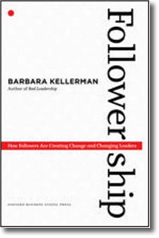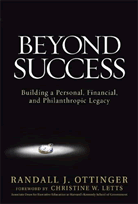Book Review: Followership
Wednesday, October 15th, 2008Followership : how followers are creating change and changing leaders by Barbara Kellerman. Harvard Business School Press, 2008.
As a follow-up to the book Bad Leadership, author Barbara Kellerman writes about the complex relationship between those who have power, authority and influence and those who do not. Most organizations have systems and structures in which superiors control their subordinates. Yet sometimes the line that separates leaders from followers is blurred. In addition, leaders may find themselves following and followers end up with more power and influence than their leaders. And most managers are both superior and subordinate at the same time.
The most interesting part of the book is the discussion about different followership styles in Part II. Author Kellerman outlines five types of followers: Isolates, Bystanders, Participants, Activists and Diehards. These followers range from those who are completely withdrawn to those who are fully engaged, either in support of or in opposition to their leaders.
This book contains vivid examples of leadership issues. Most interesting are the chapters about Merck’s marketing of its miracle drug, Vioxx; and about Cardinal Law and the Voice of the Faithful in Boston.
© Reviewer: Meg Trauner & Ford Library – Fuqua School of Business. All rights reserved.




